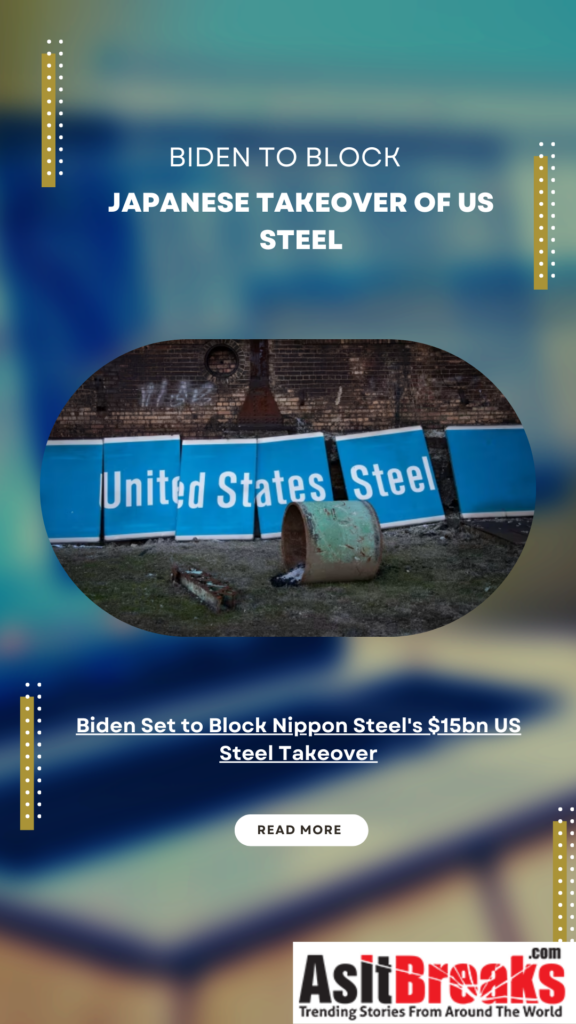WASHINGTON (AP) — President Joe Biden is expected to block Nippon Steel’s $15 billion acquisition of US Steel on Friday, amid national security concerns and political pressure in an election year, according to sources familiar with the matter.
The decision follows the Committee on Foreign Investment’s failure to reach consensus by December 23 on whether the Japanese company’s takeover posed security risks. Sources indicate Nippon Steel plans legal action, which could expose whether political interests rather than security concerns drove the decision.
Nippon Steel Vice President Takahiro Mori led last-minute efforts to win approval, offering the government veto power over production cuts at most U.S. plants. The company proposed additional assurances on jobs and investment after CFIUS expressed concerns about potential reductions in domestic steel production under Japanese ownership.
These concessions failed to persuade Biden, despite some senior advisers supporting the deal. The decision represents a victory for U.S. Trade Representative Katherine Tai and United Steelworkers union president David McCall, who strongly opposed the acquisition.
President-elect Donald Trump had also threatened to block the deal, promising to protect the Pittsburgh-based company through tariffs and tax incentives.
The move risks straining U.S.-Japan relations and could have broader implications for foreign investment in America. Japanese officials worry it may undermine four years of alliance-building amid competition with China and signal a shift toward protectionism.
“The decision risks undercutting four years of work to reassure allies such as Japan of their special relationship with the US,” said James Anderson, former senior Pentagon official. “This could have significant implications for future Japanese investment in America.”
US Steel shares fell 8% in pre-market trading. Nippon Steel declined to comment.
The blocked deal marks a departure from America’s traditionally open investment environment and reflects growing “America first” sentiment in U.S. politics.


